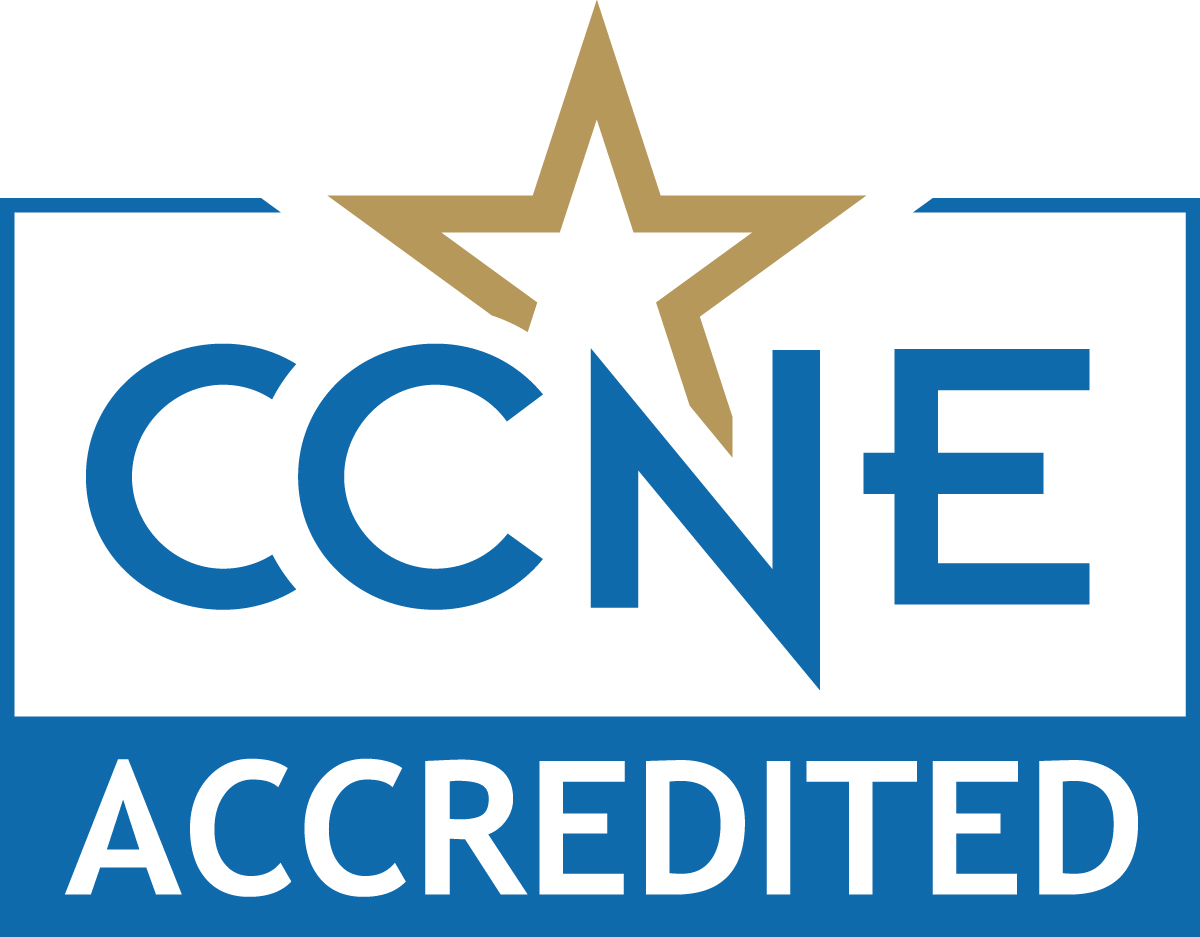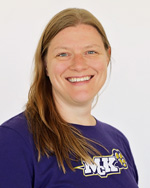Doctor of Nursing Practice (DNP)
Drive the future of healthcare as an advanced nursing leader!
The mission of the Doctor of Nursing Practice (DNP) in Ethical Leadership is to provide a high quality educational experience to advanced nursing leaders who
will drive the future of healthcare. We empower our students to embody caring and
authentic leadership in the pursuit of academic excellence that will prepare them
for interprofessional practice. To achieve this end, we inspire broader vision to
refine critical thinking, espouse ethical decision making, and integrate evidence-based
practice to achieve positive health outcomes in our global community.
The goal of the Doctor of Nursing Practice in Ethical Leadership is to prepare nurse
leaders to work at the highest level of their specialty practice and serve as ethical
leadership champions within their practice.
DNP Format
The Doctor of Nursing Practice in Ethical Leadership is designed for the working practitioner.
The 30 credit hour online curriculum is challenging, rigorous, and highly stimulating.
Participants will complete the program as a cohort (a group moving together through
the program). The two-year program begins each August, extends over five semesters,
and is a sequential course of study that includes an Advanced Nursing Project. Learners
will attend two immersions (via ZOOM) during each August of the two years. If a student
is unable to progress with the cohort, he or she will be allowed to resume coursework
with the next available cohort.
DNP Aggregate Outcomes
Upon completion of the program the graduate will be able to:
1. Integrate advanced knowledge of nursing theories, methods of inquiry, humanities,
and related sciences to translate best evidence for application to improve nursing
practice.
2. Synthesize science-based theories and concepts from nursing and other disciplines to assess, evaluate, and integrate health care phenomena to impact positive patient outcomes at the individual, group, community or global level.
3. Advocate for interprofessional collaborative initiatives to examine complex systems and develop effective methods to create positive change for improving patient and population health outcomes.
4. Engage in experiential learning and research to promote advanced level nursing scholarship grounded in ethical and moral decision making.
5. Advance the effective use of health care information technologies and systems to ensure safe high-quality outcomes with the generation of data-driven decisions.
6. Integrate clinical change through organizational and systems leadership for quality improvement and systems thinking to achieve excellence in practice.
7. Translate knowledge into personal, professional, and leadership practice to improve patient outcomes and synthesize best practice for improving the nation’s health.
DNP Immersions
This program requires two mandatory, 1-3 day immersions (via ZOOM) in August. As the
time varies each year, notification of the dates for the first immersion will be sent
out upon admission in March. Inability to attend the annual immersions will result
in dismissal from the program.
DNP Clinical Practicum
Clinical practicum experience offers students the opportunity to develop and synthesize
the knowledge and skills required to demonstrate doctoral-level competency in a specialized
nursing practice area. The clinical practicum requirement for the DNP program meets
the AACN requirement of 1,000 hours. Depending upon the documented clinical hours
from the student’s master’s education, up to 500 hours may be awarded to meet the
clinical practicum requirements. All DNP students will complete a minimum of 500 clinical
practicum hours. The clinical practicum hours include those required to complete the
Advanced Nursing Project.
DNP Advanced Nursing Project Overview
The DNP Advanced Nursing Project is the culminating scholarly experience that demonstrates
a synthesis of the DNP student’s coursework and mastery of the advanced specialty
within nursing practice laying the groundwork for the student’s future scholarship
and practice. The DNP Advanced Nursing Project focuses on translating and integrating
the principles of evidence-based practice using the systems approach to improve healthcare
outcomes at the practice, patient, or health system level. The student will identify,
develop, implement, and evaluate the Advanced Scholarly Project under the guidance
of a graduate nursing faculty member. The focus of the project is to use evidence
to improve clinical outcomes or to resolve gaps between evidence and implementation
in clinical practice and health policy.
The project is conceptualized early within the DNP program, and the Advanced Nursing
Project is completed in the last four semesters of the program. The Advanced Nursing
Project is supported by the practicum experience and is reviewed, approved, and evaluated
by the project team. The Advanced Nursing Project will have a significant, evidence-based
contribution to the practice of nursing and existing field of nursing knowledge.
DNP Courses
NSG 700 - Ethical, Legal, & Social Justice in Leadership (2 credit hours)
NSG 710 - Quality, Safety Improvement, and Risk Management with Information Technology (2 credit hours)
NSG 720 - Analytical Methods for Evidence-Based Practice and Research Translation (3 credit hours)
NSG 730 - Applied Organizational Analysis in Systems (3 credit hours)
NSG 740 - Advanced Financial Management of Healthcare Resources (3 credit hours)
NSG 750 - Strategic Leadership, Innovation, and Entrepreneurship (3 credit hours)
NSG 760 - Leading Change by Transforming Policy & Systems (3 credit hours)
NSG 770 - Population-Focused System Improvement and Design (3 credit hours)
NSG 790 - Advanced Nursing Project I (1 credit hour)
NSG 791 - Advanced Nursing Project II (2 credit hours)
NSG 792 - Advanced Nursing Project III (5 credit hours)
Total Credits = 30 hours
The Advanced Nursing Project is a total of 8 credit hours. The Advanced Nursing Project
will commence in the first year of the doctoral program and continue through the second
year. Advanced Nursing Project I will encompass the project overview and team selection.
Advanced Nursing Project II includes Topic Selection, Methodology and Literature Review.
Advanced Nursing Project III involves Implementation and Evaluation.

Accreditation
The Doctor of Nursing Practice program at McKendree University is accredited by the
Commission on Collegiate Nursing Education (https://www.aacnnursing.org/CCNE).
Testimonials
“McKendree was the perfect choice for me to complete a Doctorate in Nursing. The close
knit group of cohorts, design of the program, and amazing professional instructors
made the journey life changing. Truly one of the best experiences of my life.” ~ Dr. Colleen Frohling, ’19 DNP
DNP Admission
McKendree University admits students who present evidence of their potential to complete
graduate level work. Applicants are considered on an individual basis without regard
to sex, race, disability, nationality, sexual orientation, or religion. The following
documentation is required for consideration of admission:
1. A completed graduate admission application (no fee).
2. A master’s degree in nursing, MSN (or a BSN with a MHA or MBA) from a regionally accredited institution of higher education and a nationally accredited nursing program.
3. Official transcripts from each college or university attended. Official transcripts are those sent from institution to institution.
4. A minimum 3.5 GPA on a four-point scale in graduate studies.
5. An unencumbered valid Professional Registered Nurse license.
6. The resume or vita must document a minimum of five years of full-time nursing practice with at least two of those years in a leadership or faculty role in nursing education at a two- or four-year college or university, hospital, or health care organization.
7. Three recommendation forms from individuals who can specifically address professional performance.
8. A two- to three-page essay (APA formatted) identifying:
a) rationale for seeking the DNP,
b) description of how the DNP will foster your ethical leadership practice,
c) identification of a potential area of interest for the DNP Advanced Nursing Project (project proposal for the DNP).
9. Proof of completion of a graduate-level biostatistics or research statistics course and a graduate-level epidemiology course with a grade of “B” or better within the last five years. Students’ academic coursework will be evaluated on an individual basis for completion of these requirements.
10. Applicants who meet initial qualifications will be interviewed.
All admission documents must be received no later than 23:59 on February 1. Interviews
will begin after March 1. McKendree University carefully assesses the DNP program
applicants on the basis of evidence provided in all application materials. DNP applicants
will be notified within 30 days of completion of the interview regarding their admission
status.
Tuition, Financial Aid and Employer Reimbursement
Tuition for the online DNP program is $605 per credit hour.
Graduate Programs' Tuition Discounts
Employer Reimbursement and Financial Aid are available (click for detailed information).
Next Step
Contact your student service specialist below and get details on the admission process
and our next start date.
Student Services Specialist
Old Main 102, Lebanon, Illinois
(618) 537-6507
cjfairlie@mckendree.edu
Key Faculty
Director of DNP Program
Chair of the Division of Nursing
Assistant Professor of Nursing
(618) 537-6989
kktaylor@mckendree.edu
Assistant Professor of Nursing
(618) 537-2141
akgilbreth@mckendree.edu
 Jill Parsons, Ph.D., R.N., CNE
Jill Parsons, Ph.D., R.N., CNE
Associate Professor of Nursing
(618) 537-6842
jlparsons@mckendree.edu
 Danielle Shubert, DNP, RN, CPNP
Danielle Shubert, DNP, RN, CPNP
Assistant Professor of Nursing
(618) 537-6444
dshubert@mckendree.edu
 Misty Dickey, MS, RN
Misty Dickey, MS, RN
Instructor of Nursing
(618) 537-6437
madickey@mckendree.edu
 Megan Holtmann, DNP, RN
Megan Holtmann, DNP, RN
Assistant Professor of Nursing
(618) 537-6841
maholtmann@mckendree.edu
Colleen Frohling, DNP, RN
Lecturer of Nursing
(618) 537-2147
cmfrohling@mckendree.edu






